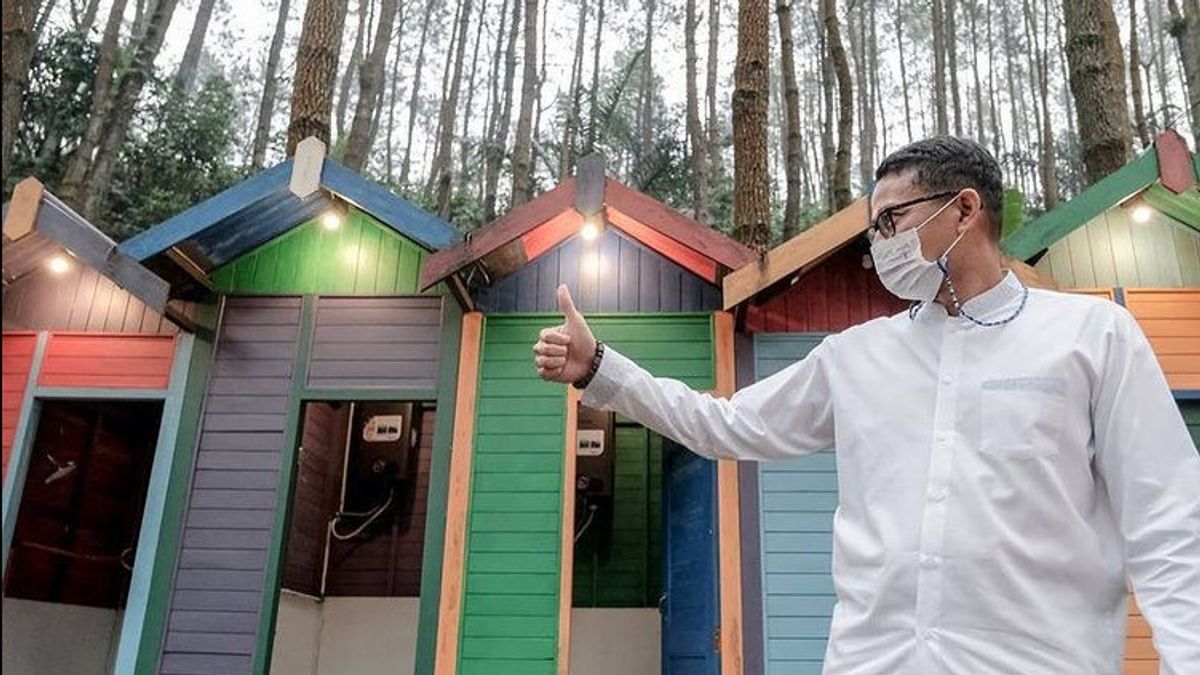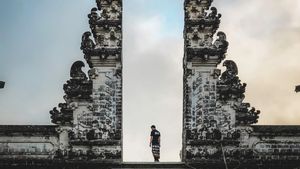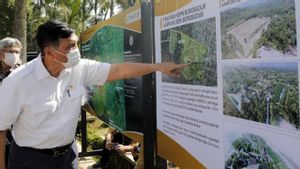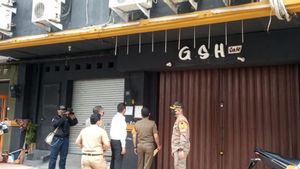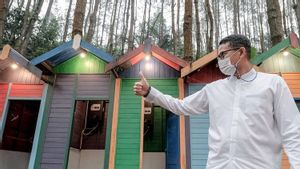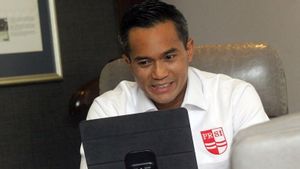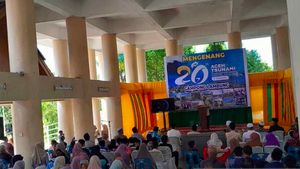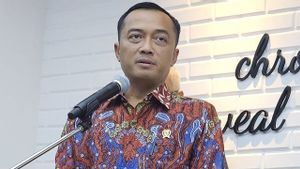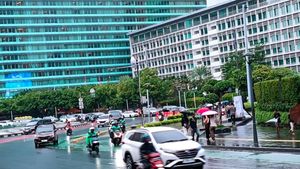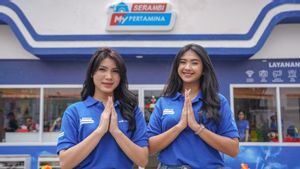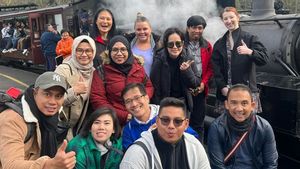JAKARTA - The government continues to rack our brains to find ways to restore the tourism industry. This is because this sector has been the most affected by the COVID-19 pandemic. One way is to develop the charm of tourist villages as an attraction for tourists.
The Minister of Tourism and Creative Economy/Head of the Tourism and Creative Economy Agency, Sandiaga Salahuddin Uno, wants to strengthen tourist villages as one of the strengths of national tourism, later on, to create jobs and provide welfare for the community.
"One of them is through strengthening narrative-based attractions (storynomic tourism) so that it can attract tourists to visit," he said, in a written statement, as quoted on Sunday, March 14.
For example, namely Karangrejo Tourism Village. This village, which is located in Borobudur District, Magelang Regency, Central Java, is one of the tourist villages that has been certified as a sustainable tourism village.
The Minister of Tourism and Creative Economy (Kemenparekraf) is currently focused on developing sustainable tourism. Meanwhile, the concept of sustainability itself is one of the requirements that a tourist village must have in order to become an independent tourism village.
The Minister of Tourism and Creative Economy assessed that Karangrejo tourism village has sufficient strength as a destination. Apart from the homestay, this tourist village also offers other attractions that are well known to tourists, such as stone carving crafts, the sunrise spot of Punthuk Setumbu, and the Chicken Church, fruit gardens, VW Safari Tour, and others.
"I feel happy because the Karangrejo tourist village on March 1 was certified as a sustainable tourism village. Here is one of the best homestays I've ever seen with world-class standards," he said.
In fact, before the pandemic, it was noted that this tourist village was visited by more than 20 thousand foreign tourists and 50 thousand domestic tourists. Therefore, Sandiaga encouraged the Karangrejo tourism village to continue to improve the quality of its sustainability and attractiveness. One of them is to prioritize originality with a narrative-based attraction approach.
"Usually tourists come to Borobudur only take photos and post them on social media, in the future, we want to improve it with a narrative like how this village was once part of the construction of Borobudur Temple. How this village played a role in the renovation stage, the figures here can tell the sites related to Borobudur. So there is storytelling," he said.
Then Karangrejo tourism village and other tourist villages must be part of the tourist travel plan. Tourism villages must be able to design three to four-day travel packages juxtaposed with the concept of ecotourism or sport tourism.
"I also see where the creative economy products here have started to adopt technology so that many creative economy players here are digitally literate so they can expand business opportunities," Sandiaga said.
Encourage 244 Tourism Villages to Develop Like Unicorn Startups
Sandiaga also encouraged 244 tourist villages in the Indonesian territory to develop like startups that would later grow into unicorns.
"In Bangli, Bali, there is Penglipuran Village. There is Jatiluwih Village in Tabanan, Bali. These are villages that have become unicorns. So how do we encourage 244 tourist villages throughout Indonesia to become unicorns," he said in a virtual discussion, Tuesday, March 9.
Furthermore, Sandi said, Indonesia has more than 75 thousand villages. Of the tens of thousands of villages, 244 tourist villages are being developed so that they can become independent tourist villages.
Of these, 54 villages are now in the pilot stage, 144 tourist villages are in the developing stage, and 48 of them have entered the advanced stage.
"This is like a startup to become a unicorn, how do these 244 tourist villages start to become unicorns," he explained.
The former Deputy Governor of DKI Jakarta said that the development of a tourism village was an effort to support the preservation of culture and the environment in the concepts of sustainability, quality, and ecotourism.
"The key is harmony, economic benefits, and preservation of culture and nature around the village," he said.
For your information, the development of tourism villages is one of six strategic steps to accelerate the recovery of the tourism sector and the creative economy in Indonesia.
Five other strategies, namely the tourism grant stimulus program; the application of the free covid corridor or what is currently known as the travel corridor arrangement which is currently in the finalization stage; development of KEK (Special Economic Zones); onboarding digitalization programs for creative economy actors; and vaccination for tourism and creative economy actors.
SEE ALSO:
English language training for tourism actors
The Ministry of Tourism and Creative Economy/the Tourism and Creative Economy Agency in collaboration with PT. Smart Digital Nusantara (CAKAP) provides online English language training for 150 tourism actors in five super-priority destinations and Belitung.
Deputy for Resources and Institutions of the Ministry of Tourism and Creative Economy/the Tourism and Creative Economy Agency, Wisnu Bawa Tarunajaya, acknowledging that the COVID-19 pandemic has indeed had an impact on decreasing tourist visits and reducing tourism activities.
However, he said, these times are a momentum for tourism actors to prepare themselves, especially by honing their foreign language skills to welcome foreign tourists when the country's borders have reopened.
Wisnu said, the demands and expectations of the quality of tourism services will be higher following changes in tourist trends with new patterns/habits, where experience will really take precedence because there are many things that must be fulfilled by tourists on their way.
"Improving the quality of service through good and communicative interactions, as well as being able to create interesting impressions and experiences for tourists, is absolutely necessary," he explained.
This training, said Wisnu, aims to provide and improve foreign language skills for tourism actors. According to him, foreign language skills, especially English, have an important role in introducing and promoting tourism potential in each region to foreign tourists.
"Therefore, through this online English training, it is hoped that it will improve the ability of tourism actors or local communities to communicate using English," he said.
The English, Chinese, Japanese, Arabic, and French versions are automatically generated by the AI. So there may still be inaccuracies in translating, please always see Indonesian as our main language. (system supported by DigitalSiber.id)
